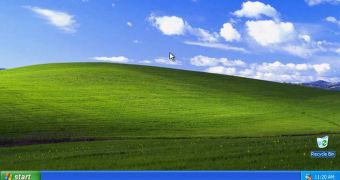Windows XP will be officially retired on April 8 and since so many users are still running the 12-year-old platform, Microsoft issues new warnings and statements on the end of support with every single occasion.
In a new comment for Neowin, Microsoft warned that Windows XP would no longer receive updates as of April 8, 2014, meaning that all those still running this particular OS version would become vulnerable to attacks supposed to exploit unpatched security glitches.
At the same time, Microsoft warned that third-party updates for security apps compatible with Windows XP won’t be enough to keep you on the safe side, as several companies have already pledged to continue providing support for XP beyond its retirement date.
“Yes, Windows XP support is ending on April 8. After April 8, 2014, Windows XP users will no longer receive new security updates, non-security hotfixes, free or paid assisted support options, or online technical content updates from Microsoft. Third parties may provide ongoing support, but it’s important to recognize that support will not address fixes and security patches in the core Windows kernel,” a Microsoft spokesperson was quoted as saying.
“Windows XP and Office 2003 were great software releases more than a decade ago, but technology has evolved along with the needs and expectations of your customers and partners that have already adopted modern platforms and devices.”
Microsoft then goes on to explain that a 12-year-old operating system doesn’t have what it takes to provide businesses with modern technologies, so the migration to a new platform is essential for many companies out there.
“Companies still on Windows XP are also missing out on tangible benefits of modernizing their IT investments from dramatically enhanced security, broad device choice to meet the needs of a mobile workforce, higher user productivity, and lower total cost of ownership by future-proofing their IT investments. A 12-year-old operating system can no longer address today’s business and technology needs nor security threats,” it concluded.

 14 DAY TRIAL //
14 DAY TRIAL //